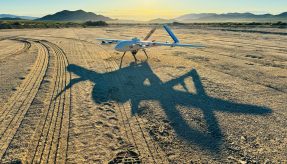
DJI has announced that its AeroScope drone detection system has been evaluated and passed by the UK’s Centre for the Protection of National Infrastructure.
The ready-to-use system which can identify, track and monitor airborne drones, was assessed successfully under the CPNI Counter Unmanned Aerial Systems (CUAS) Detect, Track and Identify (DTI) Testing and Evaluation Standard and will be included in the CPNI Catalogue of Security Equipment (CSE).
Aviation regulators in many countries are moving to require remote ID systems for drones as a solution to concerns about drone safety and security and the European Union Aviation Safety Agency (EASA) will impose remote ID requirements in July 2020. DJI’s AeroScope system is consistent with its problem-solving approach to drone regulation, which aims to strike a reasonable balance between authorities’ need to identify drones that raise concerns and drone pilots’ right to fly without pervasive surveillance. DJI has led the industry with safety and security advances such as geofencing and sense-and-avoid technology, and believes the rapid pace of innovation provides the best means to address new policy concerns.
AeroScope works with all current models of DJI drones, which analysts estimate comprise over two-thirds of the global civilian drone market. Since AeroScope transmits on a DJI drone’s existing communications link, it does not require new on-board equipment or modifications, or require extra steps or costs to be incurred by drone operators. Other drone manufacturers can easily configure their existing and future drones to transmit identification information in the same way.
Christian Struwe, Director of Public Policy, DJI EMEA, said: “It’s fantastic news that our DJI AeroScope system has been recognised by the UK’s Centre for the Protection of National Infrastructure, as a remote-ID solution to enable authorities to identify who is flying near sensitive locations or in ways that raise serious concerns.”
If you would like to join our community and read more articles like this then please click here.
AeroScope Centre for the Protection of National Infrastructure DJI







